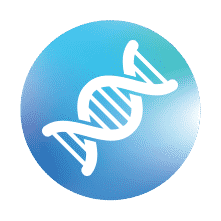Rady Children’s Institute for Genomic Medicine is committed to supporting equitable patient access to rapid whole genome sequencing, and to helping enable our partners to adopt systems to support clinical ordering. We help advocate for public Medicaid and private insurance coverage of life-saving rWGS testing.

RCIGM collaborates with clinical partners to navigate systems and implement processes to seek reimbursement for testing and improve patient access to care.
Learn more about collaborating with RCIGM to impact and effectively utilize payer policy in your area by contacting Equitable Policy and Payer Engagement Manager Maddie Arenchild.

rWGS has demonstrated high clinical utility, downstream savings, and improves the experience of care for patients and health care providers. Providing rWGS as a first-line test is a cost-effective intervention and effective quadruple aim strategy for high quality care.

RCIGM works with policy makers and payers advocating for better coverage policies for rapid whole genome sequencing. We know that favorable coverage positions help patients get the care they need when they need it.
Our advocacy work is supported by numerous peer-reviewed studies that we have published, showing that rapid Whole Genome SequencingTM (rWGS®) can empower clinicians to make timely, precise diagnoses and treatment decisions for critically ill children with genetic diseases.
Demonstrated benefits of rWGS include:


— Caleb Bupp, Division Chief, Medical Genetics & Genomics, Helen DeVos Children's Hospital
Since RCIGM completed Project Baby Bear in 2021, several states have passed legislation covering rWGS for critically-ill infants, and a number of major insurance carriers have added it to their list of covered procedures.
This map indicates the latest coverage, as of June 2025.
Please visit this page on a desktop computer to view the map showing the latest coverage.
See the tables below for more details on the state Medicaid coverage and private payers.
| State | Policy | Criteria |
| Arizona Medicaid | AHCCCS Reimbursement for Rapid Whole Genome Sequencing | ≤ 1 year; ICU (NICU/PICU/CVICU) |
| California Medi-Cal | AB133 and reflected in Provider Bulletin 573 | ≤ 1 year; ICU (NICU/PICU/CVICU) |
| Connecticut Medicaid | Public Act No. 24-130 | ≤ 1 year; ICU (NICU/PICU/CVICU) |
| Florida Medicaid | Laboratory Services Coverage Policy (Agency for Health Care Administration) | ≤ 1 year; ICU (NICU/PICU/CVICU) |
| Georgia Medicaid | July 2024 Update Laboratory Services | Not yet issued |
| Louisiana Medicaid | SB 154 and reflected in the LA Medicaid MCO Manual | ≤ 1 year; ICU (NICU/PICU/CVICU) or Pediatric Care Unit Louisiana Senate Bill 154 also requires that all private health plans cover rWGS subject to medical necessity criteria. |
| Maryland Medicaid | Lab Testing Policy | ≤ 1 year of age, intensive care or recently discharged from NICU |
| Michigan Medicaid | Lab Policy MSA 21-33, State Plan Amendment # MI-21-0010 | ≤ 1 year; ICU (NICU/PICU/CVICU) |
| Minnesota Medicaid | Lab & Pathology Services Provider Manual | No age restriction for pediatric critical care unit; ICU (NICU/PICU/CVICU) |
| North Carolina | NC Medicaid : 1S-12 | ≤ 21 years of age; currently admitted to or recently discharged from a NICU/PICU |
| Oklahoma Medicaid | HB 1576 | ≤ 21 years of age, intensive care unit or high acuity pediatric unit |
| Oregon Medicaid | Prioritized Health Services List | ≤ 1 year; ICU (NICU/PICU/CVICU) |
| South Carolina Medicaid | Genetic, Molecular and Biomarker Testing | ≤ 21 years of age and subject to medical necessity criteria |
| South Dakota Medicaid | South Dakota Medicaid Billing and Policy Manual – Laboratory and Pathology Services | No age restriction; (NICU/PICU) |
| Tennessee Medicaid | SB 1762 / HB 1826 | ≤ 21 years of age, intensive care unit or high acuity pediatric unit |
| Utah Medicaid | Medicaid Information Bulletin November 2023: 23-82 Physician and EPSDT Services Provider Manual Revisions | ≤ 1 year; ICU (NICU/PICU/CVICU) |
| Virginia Medicaid | HB 1900 | ≤ 3 years of age, intensive care unit or high acuity pediatric unit |
*These are separately payable from DRG through Medicaid.
| Plan | Criteria |
| BCBS Federal Employee Program | The patient should be critically ill and in the NICU or PICU when the test is ordered but may be discharged before results are delivered |
| BCBS of Arizona | Critically ill infants under one year of age |
| Blue Shield of California | Critically ill infants or children less than 18 years of age |
| Highmark Delaware | |
| Florida Blue | Critically ill infants and children in neonatal or pediatric intensive care with a suspected genetic disorder of unknown etiology |
| BCBS of HI – Hawaii Medical Service Association | Critically ill infants in intensive care units with a suspected genetic disorder of unknown etiology |
| Blue Cross of Idaho | Critically ill infants and children in neonatal or pediatric intensive care with a suspected genetic disorder of unknown etiology |
| BCBS of Louisiana | The patient should be critically ill and in the NICU or PICU when the test is ordered but may be discharged before results are delivered |
| BCBS of Michigan | Critically ill infants and children in neonatal or pediatric intensive care with a suspected genetic disorder of unknown etiology |
| BCBS of Mississippi | Critically ill infants and children in neonatal or pediatric intensive care with a suspected genetic disorder of unknown etiology |
| Horizon Blue New Jersey | Critically ill infants and children in neonatal or pediatric intensive care with a suspected genetic disorder of unknown etiology |
| BCBS of Western New York | Critically ill infants with a suspected genetic disorder of unknown etiology following standard workup |
| Blue Shield of Northeastern New York | Critically ill infants with a suspected genetic disorder of unknown etiology following standard workup |
| BCBS of North Dakota | Critically ill infants with a suspected genetic disorder of unknown etiology following standard workup |
| Capital Blue Cross Pennsylvania | |
| Highmark BCBS Pennsylvania | Critically ill infants under one year of age |
| Highmark Blue Shield Pennsylvania | Critically ill infants under one year of age |
| Independence Blue Cross (Pennsylvania) | Critically ill infants under one year of age |
| BCBS of Rhode Island | |
| BCBS Tennessee | Critically ill infants under one year of age |
| BCBS Texas | Critically ill infants under one year of age |
| Highmark BCBS West Virginia | Critically ill infants under one year of age |
| Plan | Policy No. | Criteria |
| Cigna | 0519 Whole Exome and Whole Genome Sequencing for Non-Cancer Indications (cigna.com) | See policy for medical necessity criteria. |
| UnitedHealthcare Commercial and Individual Exchange Plans | 2023T0589N Whole Exome and Whole Genome Sequencing – Commercial and Individual Exchange Medical Policy (uhcprovider.com) | See policy for medical necessity criteria. |
| UnitedHealthcare Community Plan |
CS150.N Whole Exome and Whole Genome Sequencing – Community Plan Medical Policy (uhcprovider.com) |
See policy for medical necessity criteria. |
Payer information current as of June 2024.
© 2025 Rady Children's Institute for Genomic Medicine.